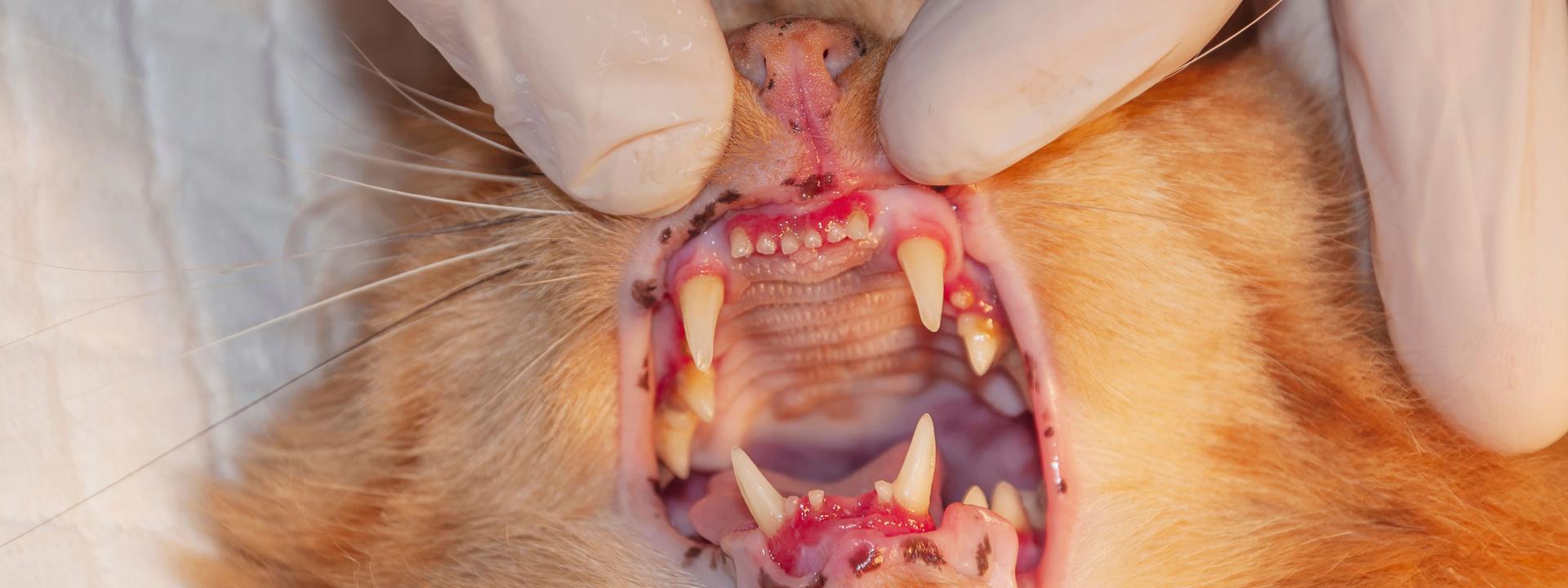
Stomatitis is the result of an overreaction of a cat's immune system to the bacteria and plaque on its teeth and gums. It is a painful and inflammatory condition affecting the mucous membranes of the mouth including the gums, tongue and inner cheeks, causing ulcerative lesions, leading to difficulty eating and changes in behavior.
Causes of Stomatitis
Stomatitis can result from several factors, including:
- Dental Disease: The most common cause of stomatitis is dental issues, such as periodontal disease, tooth resorption or gingivitis. Bacteria and plaque build-up can trigger severe inflammation in the oral cavity.
- Immune-Mediated Conditions: In some cases, stomatitis may be due to an abnormal immune response to dental plaque, where the body overreacts, causing inflammation and resultant lesions.
- Viral Infections: Infections, like feline calicivirus and feline herpesvirus, can contribute to oral inflammation and stomatitis.
- Underlying Health Issues: Conditions such as feline leukemia virus (FeLV) or feline immunodeficiency virus (FIV) can compromise the immune system, making cats more susceptible to oral diseases.
- Allergies or Sensitivities: Some cats can develop stomatitis due to allergies to certain foods or dental products.
Symptoms of Stomatitis:
Cats with stomatitis often exhibit symptoms, such as:
- Bad breath (halitosis)
- Difficulty eating or refusal to eat
- Drooling
- Red or swollen gums
- Pawing at the mouth
- Weight loss
- Irritability or behavioral changes
How is Stomatitis Treated?
In severe cases of stomatitis that do not respond to medication, usually antibiotics and pain medications, the next step is what is called a full-mouth extraction or the surgical extraction of some or all of the cat's teeth. Although a full-mouth extraction may sound drastic or extreme, this is commonly the only way to provide relief from the severe mouth pain associated with stomatitis. Cats typically do very well after extractions and go on to live long lives without oral pain. They typically eat and drink normally after their mouth has healed, although sometimes, they require softened or moist foods.
Summary:
Stomatitis in cats is a serious condition that requires proper diagnosis and treatment to avoid severe consequences on a cat's health and quality of life. If you suspect your cat may be suffering from a mouth-related issue, please call us at Animal Hospital of Statesville to schedule an examination to help you get your cat on the road to a healthier, more comfortable life!
